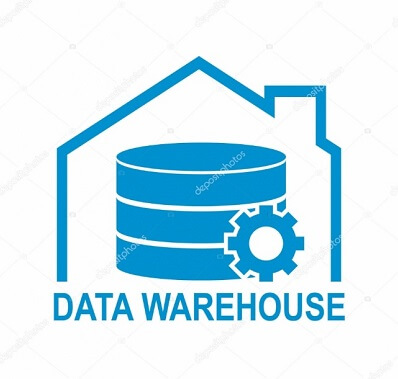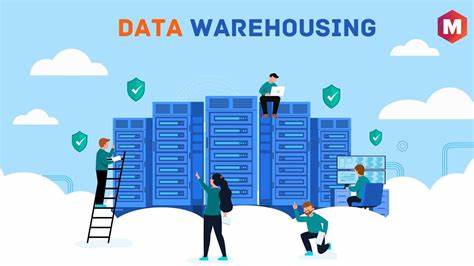Advantages and Disadvantages of Data WarehouseDefinition of a Data Warehouse:The goal of a data warehouse is to serve as a store for data that will eventually be transformed into information that users will find helpful. A data warehouse must provide accurate information to the appropriate individuals in the appropriate format and time. This means that the data it holds should be required or beneficial for the company. Using Executive Information Systems (EIS), Decision Support Systems (DSS), or other tools to create queries or reports, the data warehouse reacts to the needs of expert users. End users can easily request information about their data warehouses without interfering with or changing how the system works. 
Utilizing a data warehouse has a wide range of obvious benefits. As its name suggests, a data warehouse is a computerized warehouse where information is kept. The company in charge of this data might examine it to look for historical trends or correlations to help them make crucial business decisions. Combining information from databases scattered across numerous organizational divisions, many of which will have distinct structures (heterogeneous sources). The data warehouse should thoroughly describe and analyze the entire organization. Separating the data used in the data warehouse for analysis, control, and decision-support purposes from the data used in the day-to-day operations. Since they serve very distinct purposes and could conflict with one another, both sorts of data must not coexist in the same database. Data is periodically loaded into the data warehouse of the firm's various enterprise resource planning (ERP) systems and other business-related software systems for additional processing. These tools read the primary data frequently found in OLTP databases used by businesses, execute the data warehouse's transformation (filtering, adaption, format modifications, etc.), and then write to the warehouse. Using extraction, transformation, and loading (ETL) technologies, it is customary to standardize the data before merging it in the data warehouse. 
Any technology, no matter how sophisticated and effective, must have a counterpoint, which leads us to believe that it is not a set-in-stone or required procedure. This contributes to creating balance and demonstrates to businesses that there are exceptions and situations in which this technology may not be the solution. We can uncover various issues with data warehouses that don't necessarily have to happen in every situation. The technology's inflexibility and the potential for excessive cost growth are two issues. However, since it could occur too quickly, obsolescence is another problem. And there are instances where data warehouse effectiveness only happens sometimes. There are times when the information provided in response to a query is progressively less, which could be more helpful for a comprehensive report. Recognizing that there may be instances when using these databases can be confusing because of vague or ambiguous details is critical. As a result, IT teams must be careful to customize the user experience, clearly define the data warehouse's function, and efficiently use their resources to prevent tool waste. It highlights the requirement for the data warehouses to be set up correctly first and foremost, along with a prior analysis of the needs, which we will need to consider. Participation from the technical teams is required. Advantages of a Data Warehouse:There is no way that the fact that so many businesses have started using data warehouses could be a mistake or a coincidence. Providing businesses with easier access to relevant data is one of the goals embraced via introducing this resource in the organization. Given the breadth and depth of the information, using the data in the various company operations is more straightforward than it would be without using warehouses. A further benefit relates to how data warehouse use improves how the company's applications function. The ability to conduct combined work operations in these stores is the primary cause, simplifying the systems in this regard. Thanks to this technology, the ability to manage their interactions with customers in a more timely manner is one of the benefits that businesses value the most. The last topic we cover is how warehouses may help us make decisions more quickly, especially when there isn't any other choice. This technology makes other highly practical processes possible. For instance, it provides firms with exception reports that contrast the forecast list and the actual results that were attained. These statistics aid in identifying patterns that can be used to inform future behavior. You may also control the reports that provide information on trends, assisting us in determining which items or services are most effective in boosting support for this aspect through analysis.
Disadvantages of a Data Warehouse:Data warehouses are excellent at organizing data to provide answers to certain "questions," but they are less helpful for gaining access to data that is NOT related to those questions. Data sets must be formatted in a certain way before the warehouse can pull them. Your requested information might only be available if it complies with the warehouse's schema. Or, your warehouse can have the information you need, but it's been turned into a context inappropriate for your needs. Unstructured data is fully excluded in the meanwhile. As a result, warehouses can be extremely inflexible and challenging to utilize outside their intended use cases. Businesses that constantly look for new ways to use their existing data risk repeatedly expending too much time.
The Conclusion:The data warehouse is a paradigm that supports the implementation of analytical data management within a firm. It is a collection of techniques for working with data rather than a technical solution. |
 For Videos Join Our Youtube Channel: Join Now
For Videos Join Our Youtube Channel: Join Now
Feedback
- Send your Feedback to [email protected]
Help Others, Please Share










